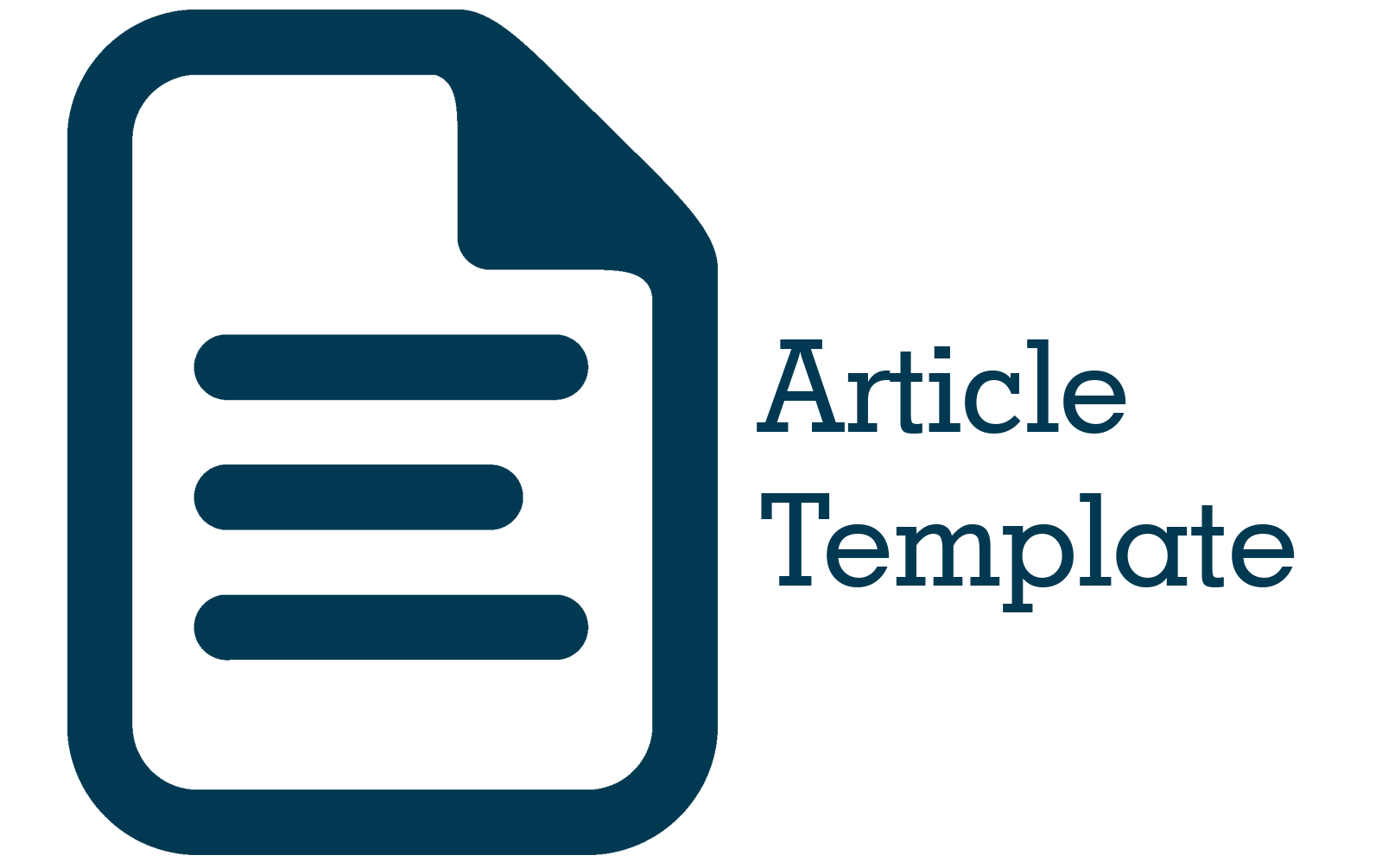Pengaruh Metode Kooperatif Tipe Jigsaw untuk Meningkatkan Hasil Belajar Siswa pada Mata Pelajaran Akidah Akhlak
Abstract
Abstract. This research was conducted in the Tsanawiyah Ath-Thohiriyyah Madrasah on Akidah Akhlak subjects using cooperative methods of the jigsaw type. The research method used was the quasi-experiment in the form of a non-equivalent control group design. The population in this study was students of classes VIIA and VIIB, i.e., experimental classes (VIIA) and control classes. (VIB). The results of the study showed 1) observed learning implementation of the planning using the Learning Implementation Plan (RPP) with the achievement of a percentage result of 93% entry criteria very good, whereas 1 other component or 7% with criteria is very bad. In the implementation learning that has been carried out in the experimental class of 21 sub-indicators, there are 18 indicators whose entry criteria are very good, with percentages of 85%, whereas 3 other sub-indicators obtained 15%. 2) The learning results of students covered the cognitive field with average results before (60) and after (80), the affective field (80), and the psychomotor field (82). It can be concluded that student learning results on the subject of ethics in the VIIA experience improvement. As for the difference between the average learning outcome between the experimental class and the control class, the results of the analysis were demonstrated by the t test on the cognitive field with the t counting outcome > t table (2.315 > 2.00404), the affective fields > t tables (3.200 > 2.001404), and the psychomotor areas > t counts tables (2.445 > 2.0000404), so it could be concluded that learning using cooperative methods of the Jigsaw type with conventional methods would produce different learning outcomes.
Abstrak. Penelitian ini dilaksanakan di Madrasah Tsanawiyah Ath-Thohiriyyah pada mata pelajaran Akidah Akhlak menggunakan metode kooperatif tipe Jigsaw. Metode penelitian yang digunakan adalah Quasi Eksperiment dengan bentuk Noneequivalent Control group Design. Populasi dalam penelitian ini adalah siswa kelas VIIA dan VIIB yakni untuk kelas ekspeirimen (VIIA) dan kelas kontrol (VIB).. Hasil penelitian memperlihatkan 1) pelaksanaan pembelajaran diamati dari perencanaan menggunakan Rencana Pelaksanaan Pembelajaran (RPP) dengan perolehan hasil persentase 93% masuk kriteria sangat baik. Sedangkan 1 komponen lainnya atau sebesar 7% dengan kriteria sangat tidak baik. Pada pelaksanaan pembelajaran yang telah terlaksana dikelas eksperimen dari 21 sub indikator terdapat 18 indikator masuk kriteria sangat baik dengan persentase sebesar 85%, sedangkan 3 sub indikator lainnya memperoleh sebesar 15%. 2) hasil belajar siswa meliputi ranah kognitif dengan hasil rata-rata sebelum (60) dan sesudah (80), ranah afektif (80) dan ranah psikomotor (82), dapat disimpulkan hasil belajar siswa pada mata pelajaran akidah akhlak di kela VIIA mengalami peningkatan. Adapun perbedaan rata-rata hasil belajar antara kelas eksperimen dan kelas kontrol dibuktikan dengan hasil analisis melalui uji t pada ranah kognitif dengan hasil t hitung > t tabel (2.315 > 2.00404), ranah afektif t hitung > t tabel (3.200 > 2.00404), ranah psikomotor t hitung > t tabel (2,445 > 2.00404), sehingga dapat ditarik kesimpulan bahwa pembelajaran menggunakan metode kooperatif tipe Jigsaw dengan konvensional akan menghasilkan hasil belajar yang berbeda.
References
Al-Fatih, M. (2022). Metode Question Student Have (Qsh) Dalam Meningkatkan Hasil Belajar Siswa Pendidikan Agama Islam. 1–23.
Fatimatuzahroh, F. (2019). Upaya Meningkatkan Hasil Belajar Peserta Didik pada Mata Pelajaran Akidah Akhlak melalui Metode Lectures Vary. 7(1).
Jessieca Annisa Meygamandhayanti, & Aep Saepudin. (2022). Implementasi Metode Talaqqi melalui Pembelajaran Hybrid pada Mata Pelajaran Tahfidz Al-Qur’an. Jurnal Riset Pendidikan Agama Islam, 73–80. https://doi.org/10.29313/jrpai.v2i2.1163
Kartikasari, C. P., Hunafa, U., & Altaftazani, D. H. (2019). PENERAPAN MODEL PEMBELAJARAN KOOPERATIF TIPE JIGSAW DALAM MENINGKATKAN PEMAHAMAN. 02(03), 109–116.
Lavendry, F. (2023). TEORI PENDIDIKAN TUNTAS MASTERY LEARNING BENYAMIN S. BLOOM Ferdinal Lafendry. 6(1), 1–12.
Muhamad Azin, & Eko Subiantoro. (2023). Penerapan Metode Role Playing Mata Pelajaran PAI dalam Meningkatkan Keaktifan Belajar Siswa. Jurnal Riset Pendidikan Agama Islam, 113–120. https://doi.org/10.29313/jrpai.v3i2.2978
Nurdin, Purwosusanto, H., & Djuhartono, T. (2021). ANALISIS PENGARUH KINERJA GURU DALAM. 7(2), 434–444.
Nurdyansyah, & Fahyuni, E. F. (2016). Inovasi Model. In Nizmania Learning Center.
Ruswandi, A., & Mahyani, A. (2022). Analisis Permasalahan Guru dalam Pembelajaran Pendidikan Agama Islam di Sekolah. … Islam, Law, and Society …, 1(1), 95–106.
Sadewa, M. A. (2022). Meninjau kurikulum prototipe melalui pendekatan integrasi-interkoneksi Prof M Amin Abdullah. Jurnal Pendidikan Dan Konseling (JPDK), 4(1), 266–280.
Sagala, A., Yusuf, M., Azhar, W., & Kurniawan, R. (2023). Penerapan Model Pembelajaran Kooperatif Tipe Jigsaw Untuk Meningkatkan Motivasi Belajar Siswa Pada Mata Pelajaran PAI Kelas VII SMP IT Nur Hyat Iman Al-Falah Kampung Dalam. 6(1), 1–6.
Samal, A. L., Yusuf, N., & Bolotio, R. (2021). Analisis Pengaruh Kinerja Guru Pendidikan Agama Islam (Pai) Di Smk Islam Yapim Kota Manado. … Jurnal Pendidikan …. https://doi.org/10.30868/ei.v10i001.1823
Subagja, W., & Wiratma, G. L. (2016). PROFIL PENILAIAN HASIL BELAJAR SISWA. 5(1), 39–54.











